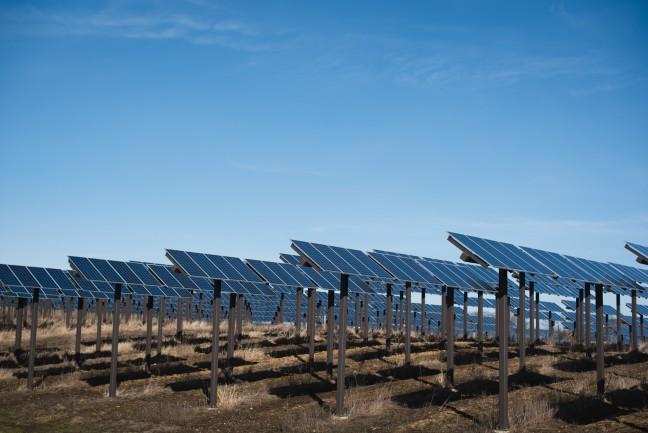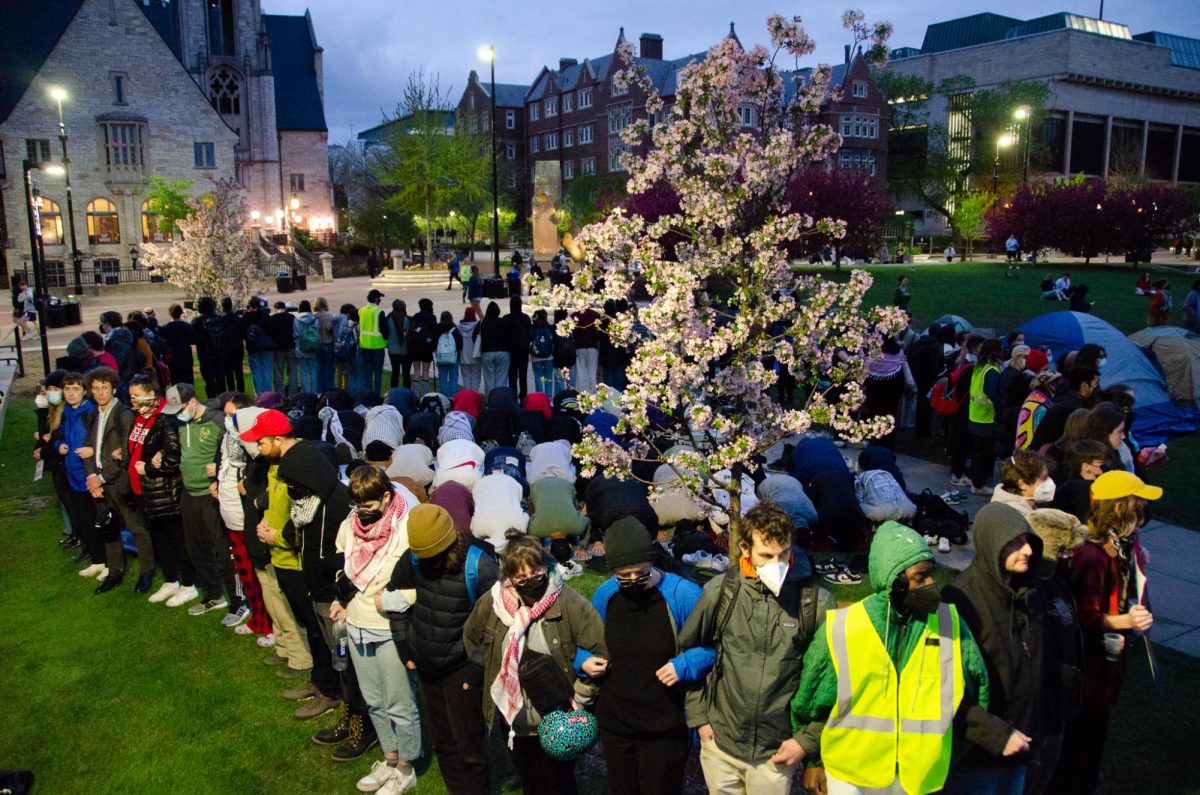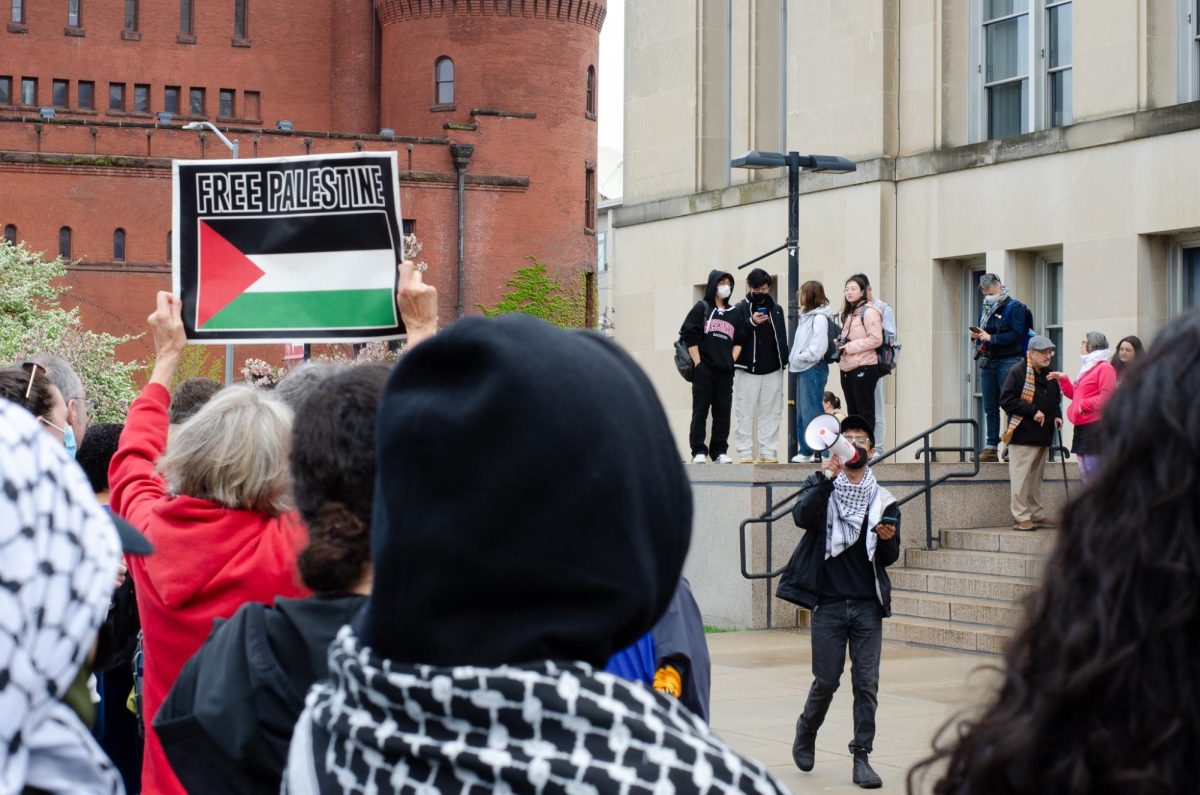The Madison City Council adopted an ambitious energy plan June 7 that focuses on cleaner and renewable energy sources.
The City of Madison’s energy plan goal is to reduce 80 percent of its carbon emissions by 2050, cutting overall energy consumption in half and getting 25 percent of electricity, heating and transportation to be from clean energy sources.
The final plan consists of 10 key elements, including setting up a working group of community stakeholders to review and update the city’s energy plan’s goals, developing inventory of city-owned land for solar energy development and collaborating with Madison Gas and Electric to help enhance energy efficiency opportunities for customers.
The Sustainable Madison Committee already adopted a sustainability plan in 2011, which had some goals regarding greenhouse gas emissions. But the new energy plan helped create more specific ways of reaching those goals, Jeanne Hoffman, the City of Madison’s facilities and sustainability manager, said.
Going for green: Wisconsin power companies look to renewables
Past challenges with MGE
Mitch Brey, the campaign organizer for RePower Madison, an organization focused on persuading MGE to support customer options for renewable energy, said one of the biggest motivators in the creation of the city’s energy plan was a proposal in 2014 from MGE to increase its monthly fixed fees. The proposal increased bills for low-energy users and reduced the market for clean energy. All consumers who use MGE have to pay the rate no matter how much energy is used.
Ultimately, MGE increased the fixed fee to $19 after receiving backlash from the community. Brey said this increase in the fee made energy goals harder to reach and solar power less attractive.
After the community backlash, Brey said, MGE began holding community energy conversations to help engage customers about its energy future.
Future collaboration to tackle energy crisis
Hoffman said discussions with MGE about the city’s energy plan have already begun.
“We will be talking with them about how we can work in partnership to again work more aggressively in converting our electrical energy from mostly coal to cleaner sources of energy,” Hoffman said.
According to MGE spokesperson Dana Brueck, the company is in support of the city’s energy plan. MGE’s Energy 2030 framework, which it created last November with community input, is consistent with the city’s goal of 25 percent renewable energy by 2025, she added.
MGE’s Energy 2030 also calls for a greater use of renewable resources, a reduction in carbon dioxide emissions and more energy efficiency. MGE also has no plans to invest in new coal plants, the nation’s top source of carbon emissions.
“The Council’s approval of the city’s energy plan is a path forward for us to work together and advance areas of common interest,” Brueck said. “We’re looking forward to sitting down with city representatives and further discussing how we’ll move forward.”
Solar power starting up in Madison
Hoffman said the city is already working hard to install solar panels on many new buildings and retrofitting older buildings to accommodate solar and move forward with meeting energy goals.
“The city will … have an important role to play. We are in essence a large power user,” Hoffman said. “We have 300 buildings that are all powered with electricity, and so we are … trying to lead by example.”
In addition to looking at solar power, the city is also looking to make city buildings more energy efficient. Madison is trying to sponsor more programs in the community that can help residential and business owners install solar or find ways of being energy efficient themselves.
Brey said the city’s energy plan will help move it in the right direction when it comes to the climate change crisis. He said he hopes that a community energy partnership, where representatives of the community can give input into utility planning, will be created.
“One outcome of this energy plan is for the city to really take a leading role in the formation of a community energy partnership.” Brey said. “It’s going to take effort from everyone to tackle these problems.”
















